
‘As long as people are protesting in the street, the coup isn’t over’

UN Special Envoy for Myanmar, Christine Schraner Burgener, wants to bring the generals involved in the Myanmar coup to the negotiating table. Without a solution, a civil war and a humanitarian crisis threaten the country.
We spoke to Christine Schraner Burgener over Zoom. She is currently working from her home in Bern, trying to find a peaceful solution to the situation in Myanmar – one that could make history.
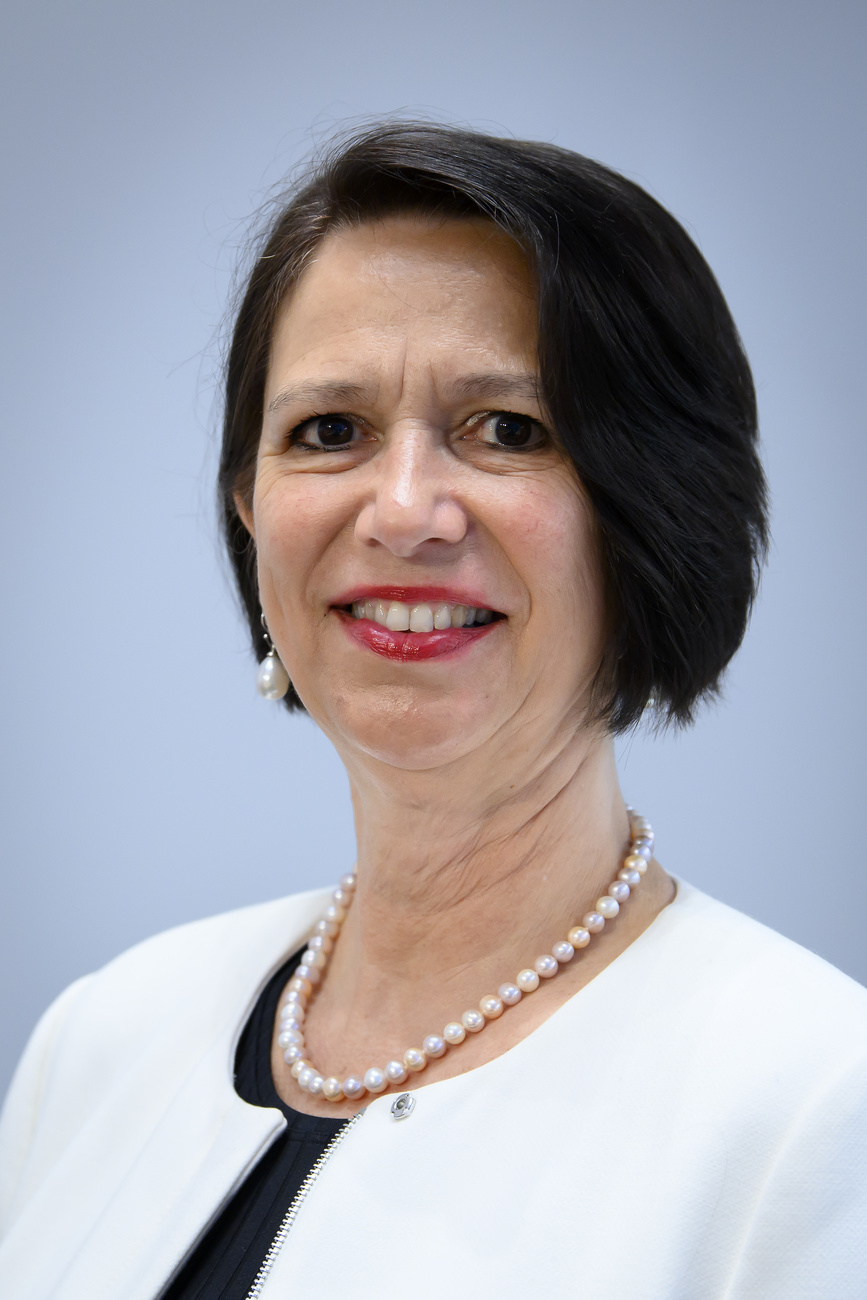
Since General Min Aung Hlaing unexpectedly seized power on February 1 this year, protesters have been killed daily by the security forces and dozens of activists are arrested every night without charge. In her role as the UN Special Envoy for Myanmar, Schraner Burgener has been trying to find ways to de-escalate the situation.
She’s working 19 hours a day – also because of the time difference. She gets up early to have as much time as possible to talk to her two colleagues in Myanmar, to protesters, ministers, ambassadors and NGOs.
And she works late into the night to attend briefings by the UN Security Council and the General Assembly in New York, as well as attending video conferences with foreign ministers. “On Sunday, I was outside for an hour’s walk for the first time in six weeks,” Schraner Burgener says. It doesn’t sound like a complaint.
For a long time, the UN Special Envoy shied away from appearing in media, for which she often drew criticism. According to critics, she did not condemn the human rights violations in Myanmar with enough vigour – particularly the genocide of the Rohingya Muslim minority. “If I had done that, I would have been just one voice among many. My task was a different one,” she says.
Christine Schraner Burgener was born in Meiringen, in central Switzerland, in 1963 and grew up in Japan. She joined the Swiss diplomatic service in 1991.
After postings in Morocco, Bern and Dublin, Schraner Burgener became deputy director of the FDFA’s Directorate of International Law and head of the Human Rights and International Humanitarian Law Division.
From 2009 she was ambassador to Thailand, and from 2015 ambassador to Germany. Three years later, UN Secretary-General António Guterres appointed her UN Special Envoy for Myanmar.
This was only a few months after the expulsion of hundreds of thousands of members of the Rohingya Muslim minority by the Burmese army. In 2022, she will take over as head of the Swiss State Secretariat for Migration (SEM).
To successfully advance her mandate of supporting the democratisation of Myanmar, she had to avoid being vocal about political issues. This was essential to develop contacts within the army, the now deposed Prime Minister Aung San Suu Kyi’s National League for Democracy party and the ethnic minorities in the country. She needed to remain in dialogue with all parties.
However, since the coup she has seen it as her responsibility to inform the public about the war that the military is waging against its own people. She is not shying away from speaking out. “My mandate was very difficult from the beginning, the coup has not changed it that much,” says Schraner Burgener. “Except that today it is a matter of life and death. It’s about preventing more people from being shot in the streets.”
swissinfo.ch: Ms Schraner Burgener, shortly before our interview you held a three-hour video conference with key figures in the pro-democracy protests from all over Myanmar. What did they tell you?
Christine Schraner Burgener: Everyone was extremely frustrated today. They have read and heard enough statements and speeches from the government representatives and the UN. Something needs to be done now.
They want an international military intervention to stop the Burmese army from committing further crimes against humanity. My thankless task in this situation is to explain to them that such an intervention will not happen.
And a UN resolution based on the responsibility to protect would require a decision by the UN Security Council. That is prevented by the veto powers China and Russia.
The reaction of my interlocutors is this: “Then let a single state send its army”. That’s not possible either, of course. But at least there is not a single country that approves of the current situation in Myanmar.
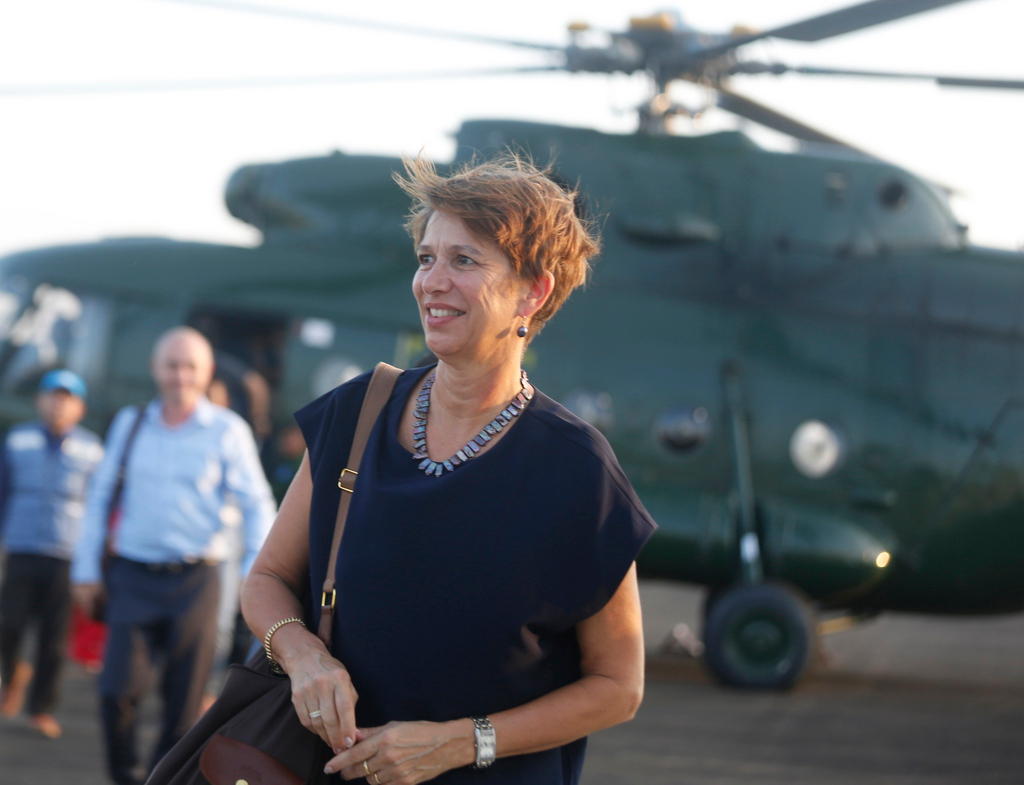
More
Meet the Swiss woman charged with bringing peace to Myanmar
The criticism of this situation by members of ASEAN [the Association of Southeast Asian Nations] is getting louder and a few days ago Indonesia announced its plans to organise a summit to discuss the situation in Myanmar together with the UN. My hope is that the army will realise that it is completely isolated.
swissinfo.ch: But do the Junta generals even care? Military leaders are preparing for a lengthy period, similar to the 50-year dictatorship, with very few friends and sanctions.
CSB: The army believes that a return to the pre-2011 era is possible. In my opinion, however, this is an illusion. We are living in 2021, the population is no longer going along with this.
Ten years of democratisation cannot simply be undone. Many young people who are now protesting in the streets only know freedom. If you are a 20 or 25-year-old in Myanmar today, it is normal for you to express yourself freely and for the media to report critically on the government and the army.
Despite setbacks in recent years, I have always been amazed at how openly the Burmese people express criticism today. If you grow up like this, you never want to go back. The army has underestimated that.
And this time it is not only the monks taking to the streets, as it was during the 1988 protests. Resistance is spread across all classes, all groups within society and religions and has support from most of the ethnic armed groups. This is important, but at the same time it holds the potential for the conflict to escalate into a civil war.

swissinfo.ch: The protests have been ongoing for almost two months now. Martial law has been declared and the security forces are increasingly terrorising people. How is the population handling this situation?
CSB: We will reach the point of a humanitarian crisis soon. Most people can no longer withdraw money and food is becoming scarce. The health care system has completely collapsed, and there is no talk of preventing coronavirus infections.
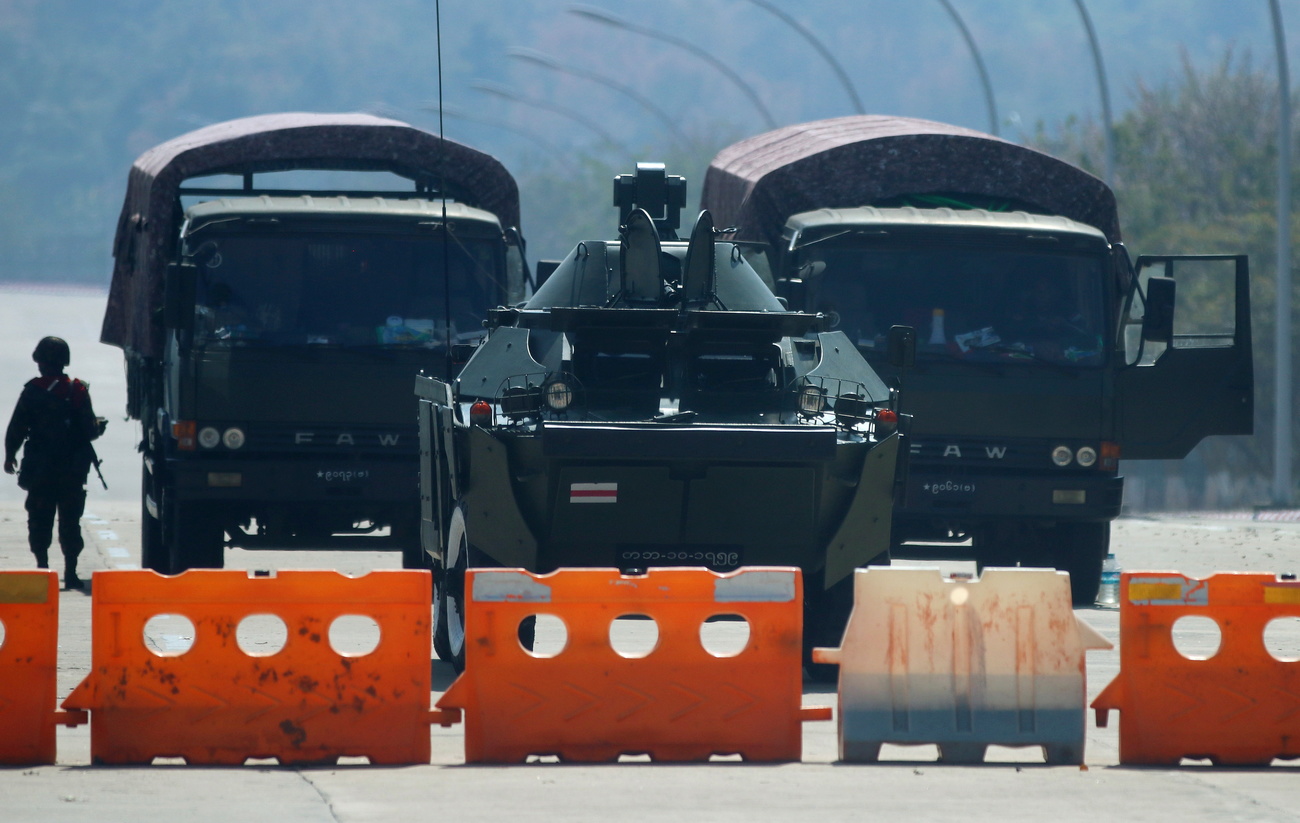
More
Myanmar faces “catastrophe”: Swiss UN diplomat
In addition, we shouldn’t forget that before the coup, there were around 300,000 internally displaced people in Myanmar due to conflicts with ethnic minorities. Some 60,000 displacements took place in the last two years alone due to the army’s war against the Arakan Army in Rakhine State.
swissinfo.ch: In recent days, there have been reports of more and more people fleeing their homes because of the terror inflicted by security forces.
CSB: Yes. Many people are seeking refuge with armed ethnic groups in the countryside or fleeing to Thailand. At the border, where thousands of Burmese refugees live, reception centres are currently being set up. But most of the refugees try to go into hiding in a neighbouring country illegally because they fear the authorities.
swissinfo.ch: In a recent interview you said that you receive around 2,000 messages a day from people in Myanmar. What do they say?
CSB: Often it’s videos of the protests. These videos can be sickening. For example, they show people helping as volunteers are being dragged out of an ambulance by police officers. Then the police officers beat the volunteers to death in the streets with the butts of their rifles.
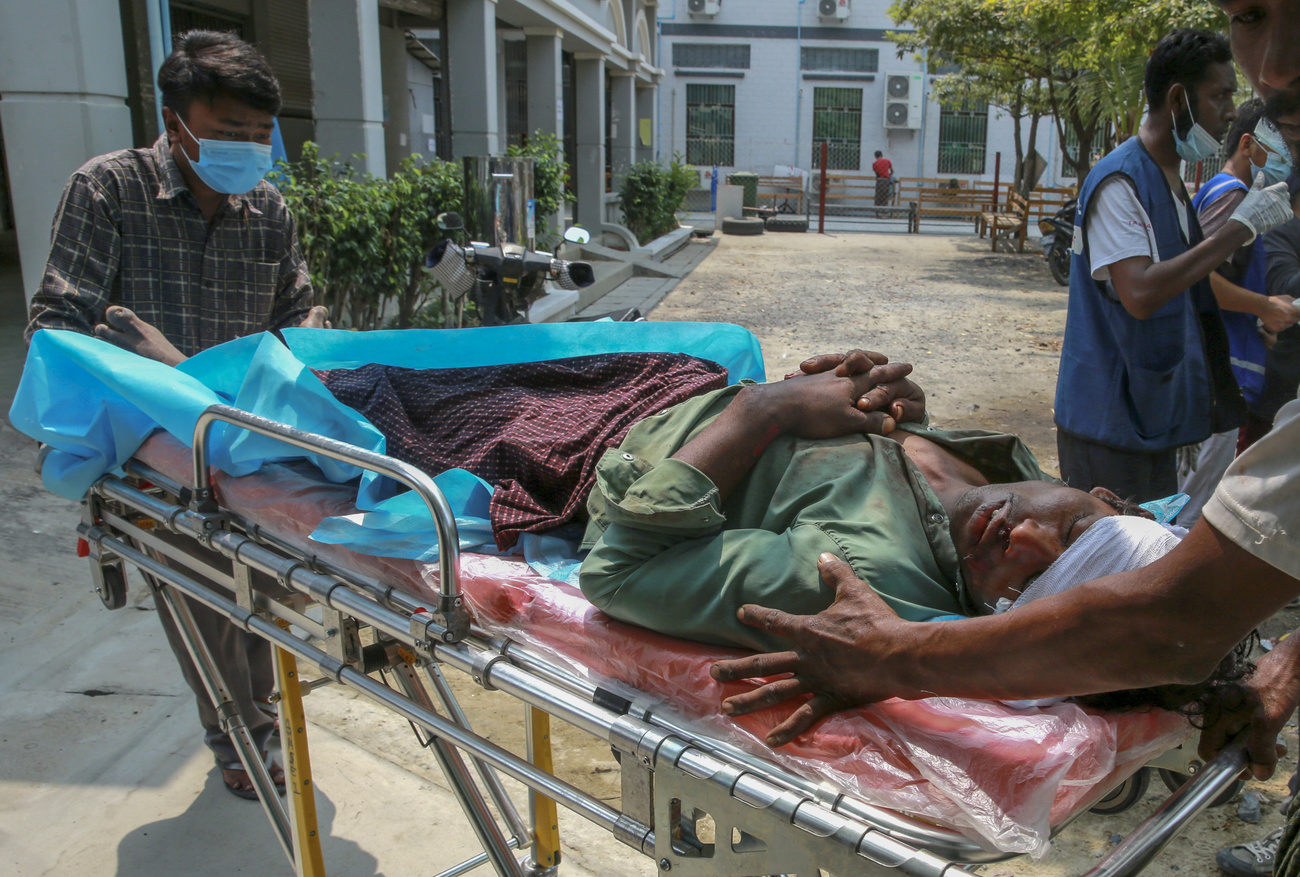
I have also seen videos of police officers shooting unarmed demonstrators in the head at close range. I received a message from a complete stranger recently, who wrote to me that she was ready to die for freedom if that means that she and her children would not have to live in a dictatorship again.
swissinfo.ch: How do you respond to these cries for help?
CSB: As best I can. Yesterday, I took an hour to look at the messages and briefly answer 200 of them. I try to encourage people and show my appreciation for their willingness to continue to take to the streets for freedom.
It’s easy to do from my warm flat in Bern of course. But at least the people on the ground should know that I am 100% with them every day and that I try to pull strings in the background. But they also need to know that they should not expect miracles from me.
swissinfo.ch: Last weekend, security forces shot dozens of people during protests. Has resistance broken by this?
CSB: No. But the protesters’ tactics have changed. Until now, they did not shy away from confrontation with the security forces. Now they selectively choose places where the police and army are not present and disappear as soon as they appear.
The protesters have become more cautious, but they are still very determined. That gives me courage. Because as long as people are protesting in the street, the coup isn’t over.
What we must avoid at all costs is a return to a ‘business as usual’ mentality. As soon as everyone returns to their jobs and submits to a new dictatorship, it will be very difficult to mobilise the population again. There will be more victims and that is incredibly tragic. Sometimes I almost despair because we cannot do more.
swissinfo.ch: The situation in Myanmar is at gridlock. The UN Security Council can’t agree on international intervention and the military Junta will do anything to retain power. Even if compromises could be made, the pro-democracy movement won’t consider a return to power sharing with the army. How do you intend to mediate in this situation?
CSB: For me, there is no compromise on the question of who provides the legitimate government: the elected representatives who have either been arrested, are in hiding or who have fled to Thailand. I do have ideas on how the army can be brought its senses. The important thing – as it is almost always the case in Asia – is that everyone can save face. For such mediations, I must speak in person with the people in charge.
swissinfo.ch: You have two staff members on the ground in Myanmar, but for weeks you have wanted to travel there yourself. What is keeping you from going?
CSB: There are critical voices in the UN Security Council who fear that the military regime could gain additional legitimacy through my presence. But I am convinced that this is a question of communication. If it is made clear from the start that I am going there to express my displeasure about the current situation and to find solutions, then this would not legitimise the Junta.

swissinfo.ch: Do you need the approval of the Security Council to travel as a special envoy?
CSB: No, I would probably be there already if it wasn’t for the pandemic. Coronavirus has made it very difficult for me to carry out my mandate. Currently there is an obligation to quarantine for two weeks upon arrival in practically all Asian countries. And the airport in Yangon is closed; it is only used for rescue flights for foreigners and for a UN connection every fortnight from Kuala Lumpur.
swissinfo.ch: Why would it be so important for you to be on the ground now?
CSB: Certain things cannot be discussed via video chat, only in private. When I speak with the army via the phone, the conversations are always recorded. So there is a risk that passages are cut out and put into a different context. In personal conversations, on the other hand, there are always moments when you can whisper confidential things to someone.
swissinfo.ch: What would a solution look like in which the generals could save face?
CSB: I don’t want to give too much away. But you must talk to the right people. The army will continue to exist. The question is who will lead it. I am convinced that there are ways out of this situation. Even within the army there are those who are starting to realise that the situation will become hopeless for them if they continue like this.
swissinfo.ch: You have been to Myanmar dozens of times in the last three years and met both Aung San Suu Kyi and representatives of the army. How surprising was this coup for you?
CSB: I warned people and the UN Security Council again and again that there could be a coup. Most people thought I was exaggerating.
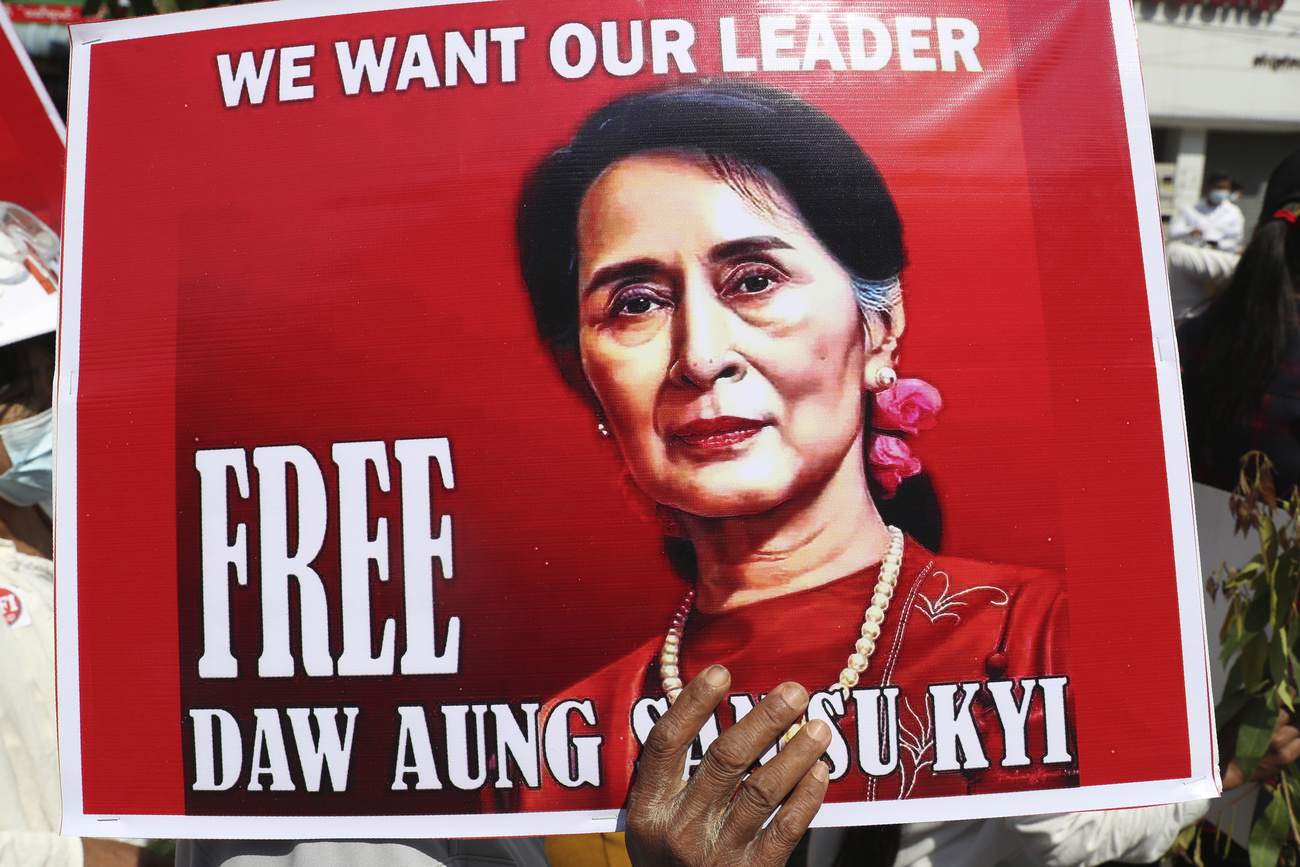
It was unfair of the international community to criticise Aung San Suu Kyi personally for the atrocities committed by the military. Her situation was impossible. How can you run a government when the army always has a veto and can block almost all decisions?
At some point, she turned her back on everyone and focused on moving the country she had sacrificed so much for forward, despite the opposition. And now she is in detention again; it is exasperating…
swissinfo.ch: Do you know how she is doing?
CSB: No, I haven’t had any contact with her since the coup. But we are in contact with her lawyer, who told us that she looked healthy and very determined on recent images taken from video footage. That reassured me a little. I take it as a sign that Aung San Suu Kyi has not given up yet.
Translated from German by Isabelle Bannerman
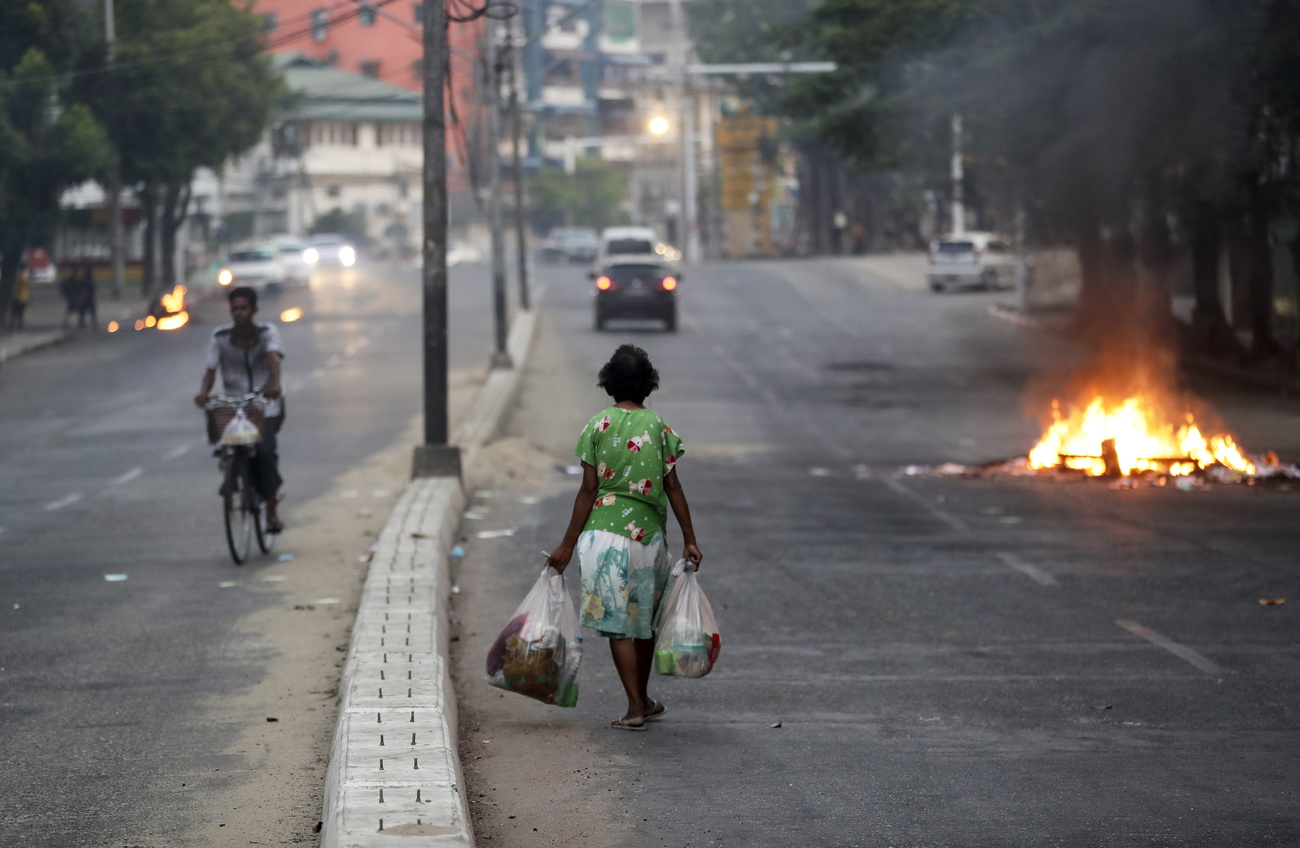
More
Switzerland imposes new sanctions on Myanmar junta
Isabelle Bannerman

In compliance with the JTI standards
More: SWI swissinfo.ch certified by the Journalism Trust Initiative






























You can find an overview of ongoing debates with our journalists here . Please join us!
If you want to start a conversation about a topic raised in this article or want to report factual errors, email us at english@swissinfo.ch.